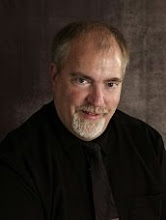The axis of evil

At the beginning of his presidency, Ronald Reagan caused great indignation among his political opponents by daring to call the Soviet Union an “evil empire.” (By the way, read the whole speech. You'll be amazed at how relevant it is even today.) Reagan, who passed away in 2004, was mocked as “Ronnie Ray-gun” (I'd provide you a link but all the ones I found were laced with lewd and vulgar language) and a dangerous cowboy by liberals who feared that his policy of confrontation would lead to nuclear war. History has proven them wrong. The evil empire could not maintain its control over people it oppressed, and it disintegrated. Many former communist satellites in Eastern Europe, such as Poland, have turned to the United States for support in their struggle to establish democracy. Nations like Russia and the former East Germany still remain backward and in need of basic infrastructure repair. Communism, for all its promise of equality for all, stifled economic growth and oppressed those who would challenge the totalitarian rulers. The world should rightfully say “Good riddance.”
Or can we? This weekend brought another reminder that Communism is not dead and has not been exterminated from the world. George Bush identified North Korea as one-third of the “axis of evil” (along with Saddam Hussein’s Iraq and Iran) that comprised the biggest threat to world peace. The headline read, “US blacklists eight North Korean entities over WMD proliferation.” Here are the key paragraphs from the story:
President George W. Bush has introduced rules imposing strong financial sanctions against not only weapons of mass destruction but also entities and individuals providing support or services to proliferators.
The Treasury Department said the move Friday was part of ongoing government interagency efforts to combat unconventional weapons trafficking "by blocking the property of entities and individuals that engage in proliferation activities and their support networks."
At six-party talks last month, North Korea pledged to give up its nuclear weapons in exchange for promises of aid and security, the first major breakthrough after more than two years of deadlock over Pyongyang's atomic ambitions.
In return, the United States said it would respect the North's sovereignty and would not attack, a fear Pyongyang had repeatedly said was a main reason for insisting on developing an atomic bomb program.
But after the agreement was announced, North Korea, which is badly short of electricity, immediately said it would insist on having light-water nuclear reactors for civilian energy purposes before giving up its weapons.
The attempts to curtail and contain the spread of communism on the Korean peninsula were the occasion for the Korean war in the early 50’s. During the 1990’s, North Korea developed a nuclear weapons capability, and most of its national wealth is placed into its weaponry. This makes them very dangerous as well as desperate. One can only hope that they will see the prosperity of their South Korean neighbors and the increasing economic power of their Chinese neighbors to the north and recognize, as the original evil empire did, that communism is a failed experiment, and totalitarian rule can never be considered legitimate.
As the Iraqi people continue their climb to democracy, and their military demonstrates the increasing ability to defend their nation against the jihadist insurgents without US help, keep an eye on events in Iran and North Korea. World peace won’t come just by having beauty pageant contestants wishing for it or by hippies playing the guitar and demonstrating. True peace is that which accompanies freedom, and true peace has never been attained without the bravery of courageous warriors who confront evil by name and do not back down.
We enjoy peace with God because Jesus confronted the evil one and went to war with him. He defeated him at the cost of his own life. No Jesus, no peace—only the oppression and tyranny of the evil one. So know Jesus, know peace.

